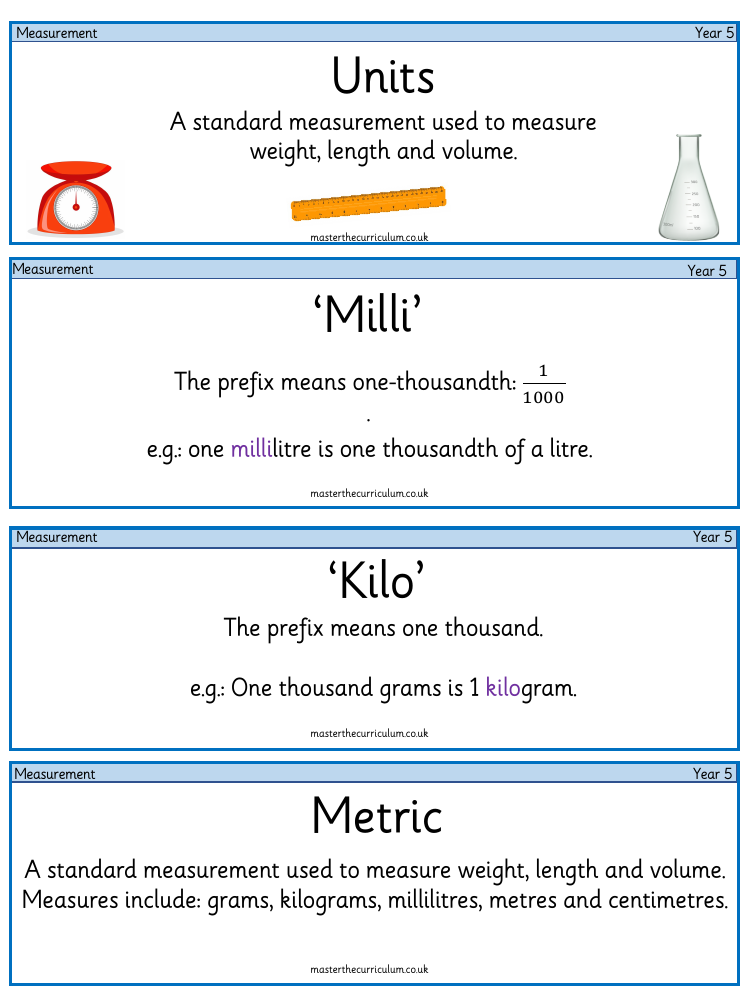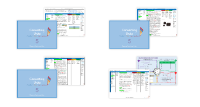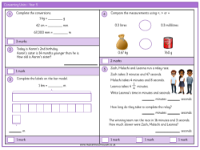Converting Units - Vocabulary

Maths Resource Description
In the realm of measurement, particularly for Year 5 students, understanding the vocabulary associated with metric and imperial units is crucial. The term 'kilo' signifies a thousand units and is used as a prefix in the metric system. For instance, a kilogram represents one thousand grams. Similarly, 'milli' denotes a fraction, precisely one-thousandth of a unit, meaning a millilitre is one thousandth of a litre. These prefixes are foundational in comprehending the metric system, which is a standardised method of measuring weight, length, and volume using units such as grams, kilograms, millilitres, metres, and centimetres.
Contrasting the metric system is the imperial system, an older form of measurement that includes pounds, ounces, gallons, pints, inches, and feet. When discussing length, 'metre' is a metric unit of distance, where 1 metre is equivalent to 100 centimetres. For shorter distances, millimetres are used where 10mm equals 1cm. Volume and capacity are measured in litres and millilitres, with 1 litre being equal to 1,000 millilitres. Mass is measured in grams, and larger weights are expressed in kilograms, where 1kg equals 1,000g. Understanding these units and the ability to compare and convert between them is an essential skill in the curriculum for Year 5 students.


